Many people who consume meat are stuck in a conflict between their food preferences and their relationship to animals. In some academic literature, this is referred to as a “meat paradox,” which is related to confronting the struggle between human behavior and political ideals. Within this, it has been postulated that there could be cognitive dissonance related to human decisions in eating meat.
Spring Chicken probes the issue of the “meat paradox” in presenting a dystopian dinner setting- luring the issue of engaging in a dissonant state to consume the raw product before the viewer. This work seeks to test the self identification in eating meat by putting on display the raw flesh form of something many meat eaters love so much- chicken. Spring Chicken asks “are you okay with this now?” In testing the recognition of one's decision to be a meat eater, and the values and attitudes held within that, the shiny underbelly of the “meat paradox” can be exposed.
Spring Chicken invited New Yorkers to engage and interact with the piece as they passed by.
All animal products used in assembly were extracted from a Fair Trade dumpster or Food Depot garbage bin.
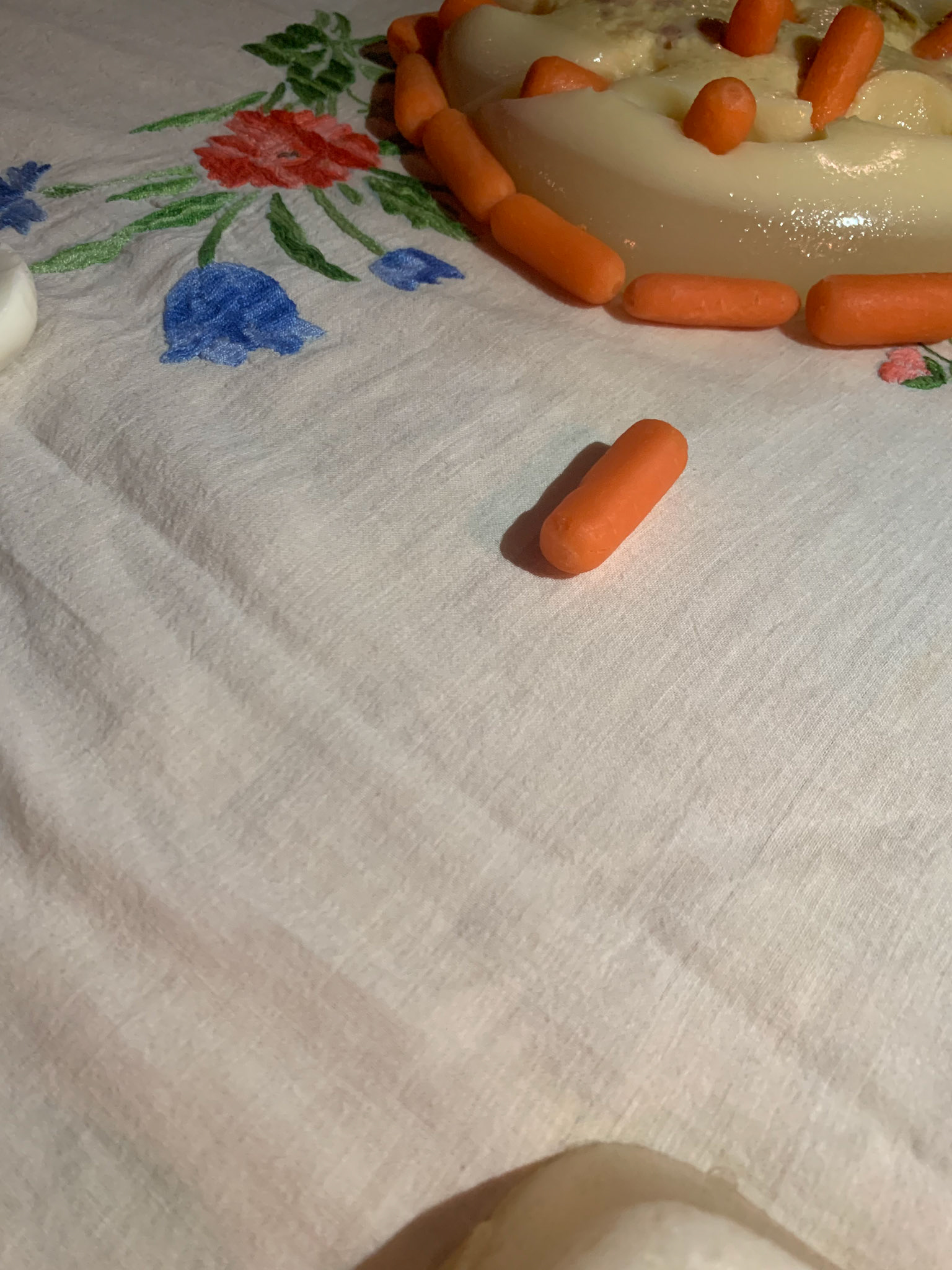
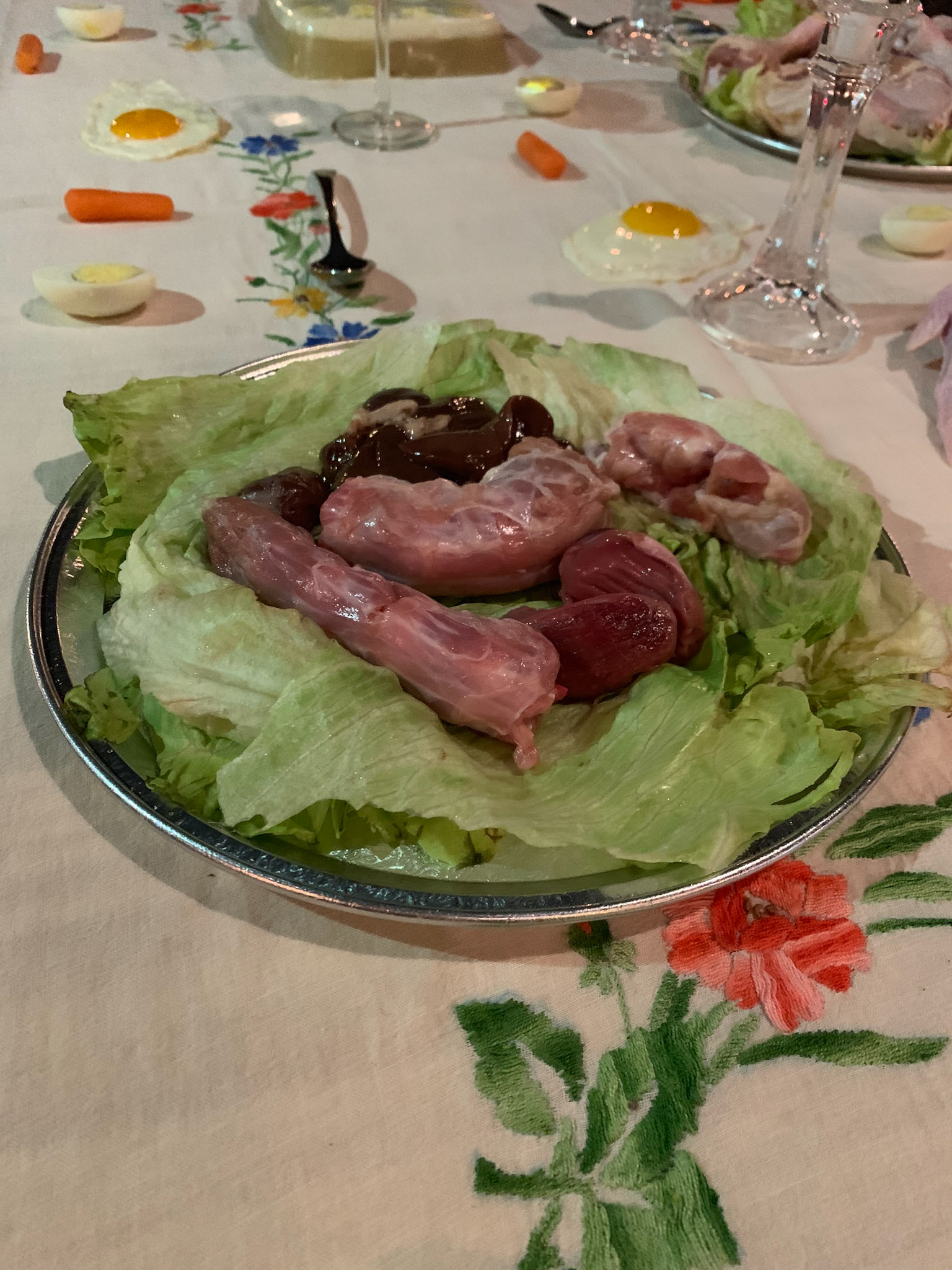
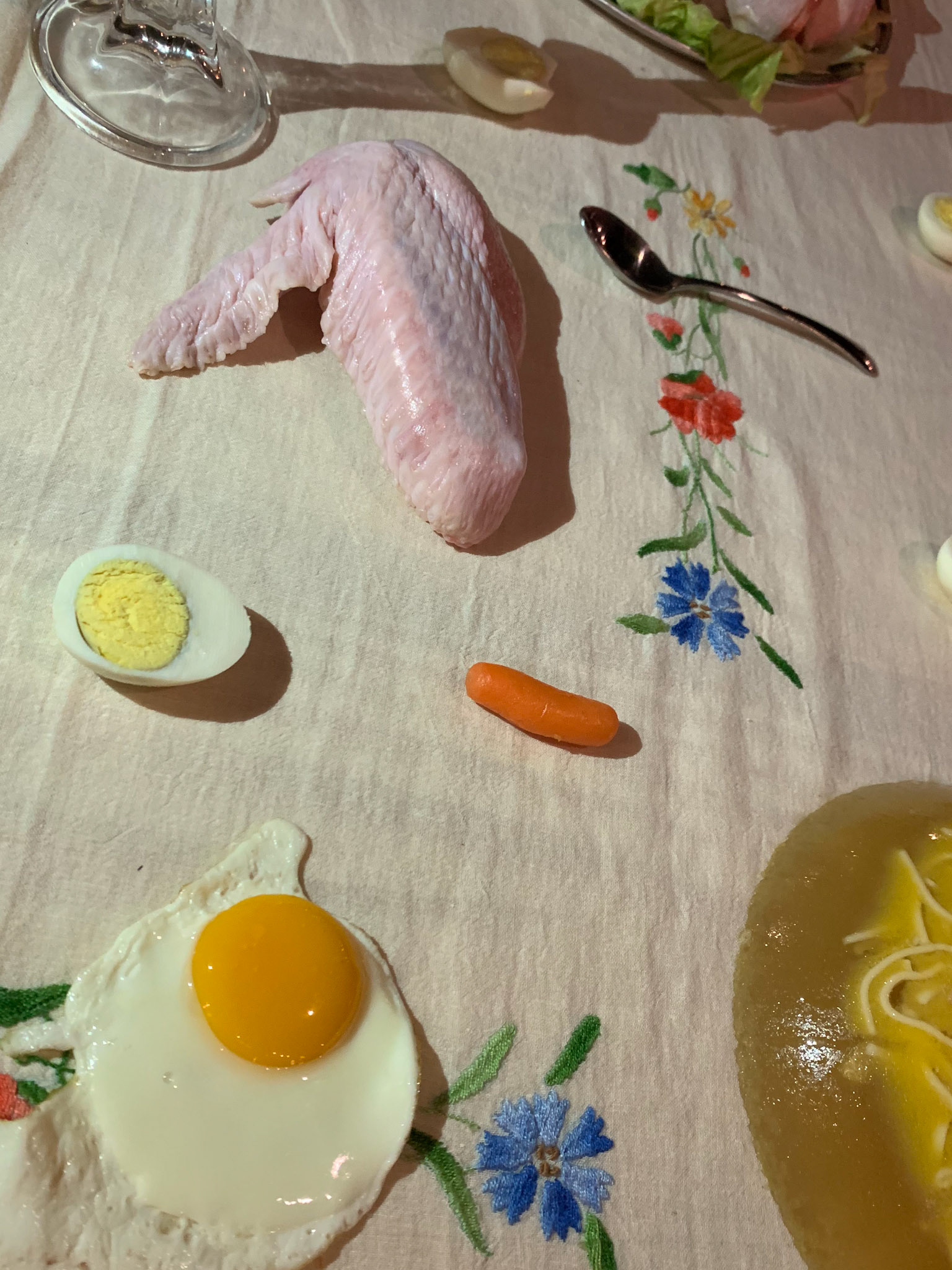
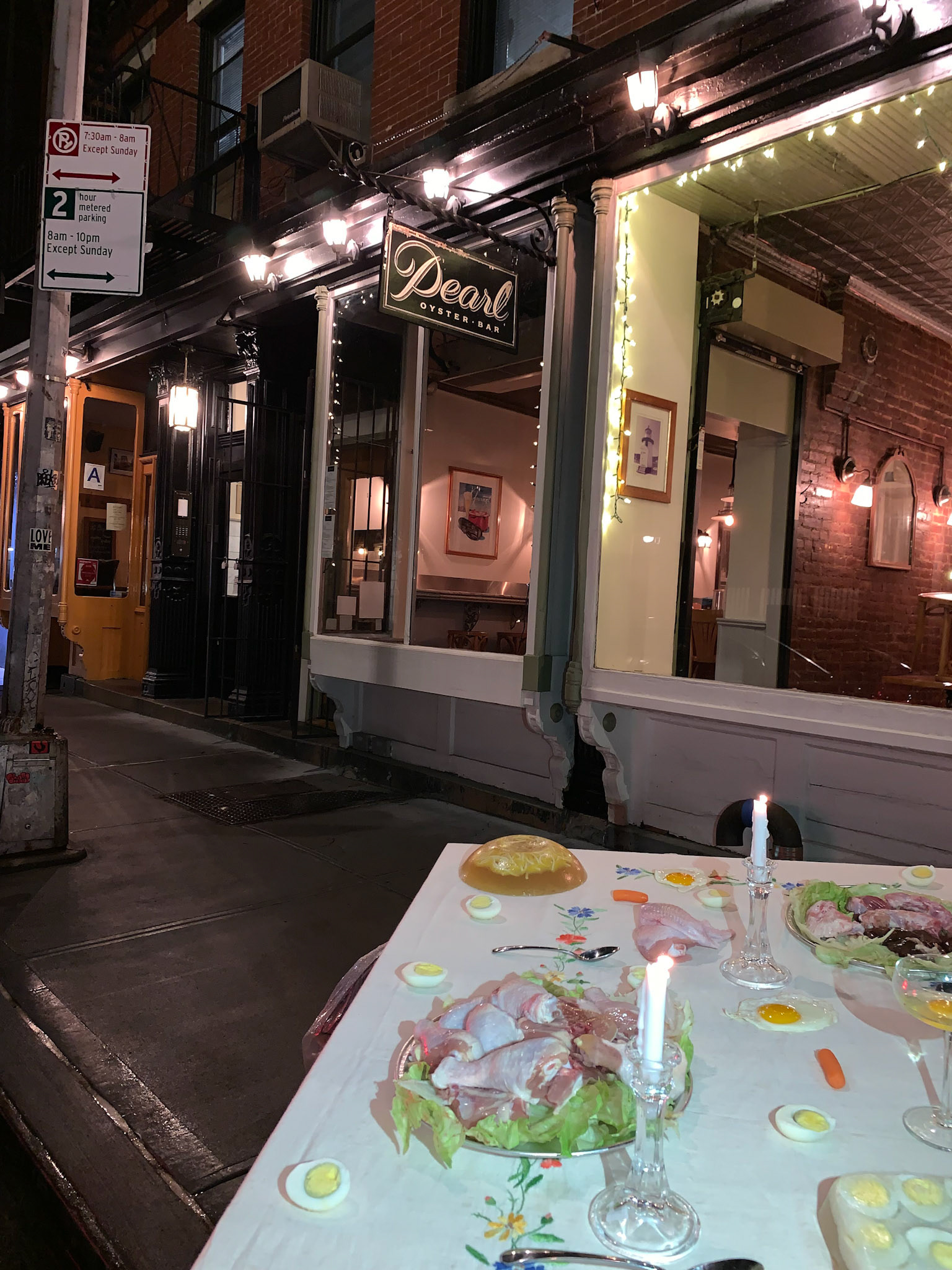
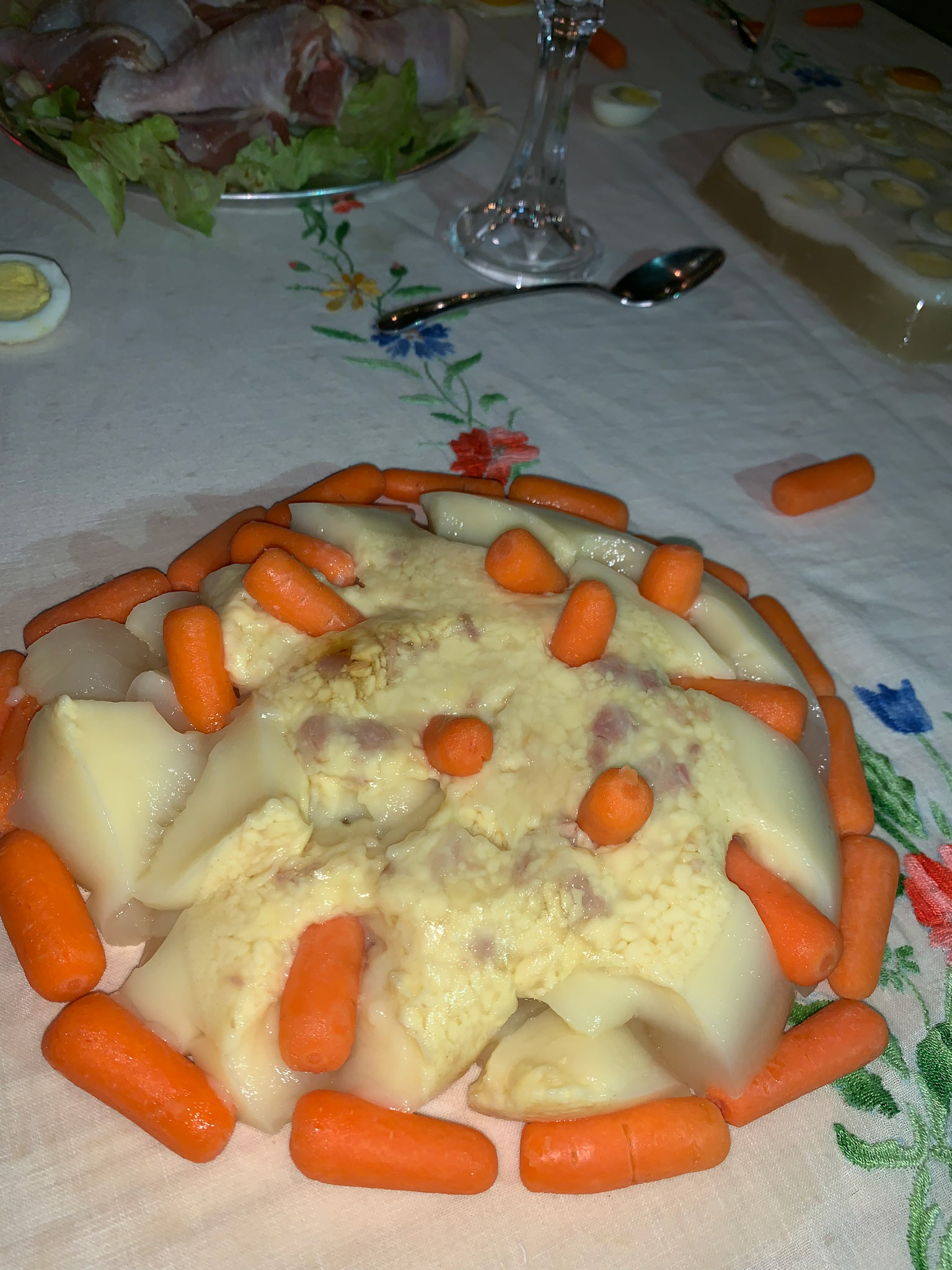
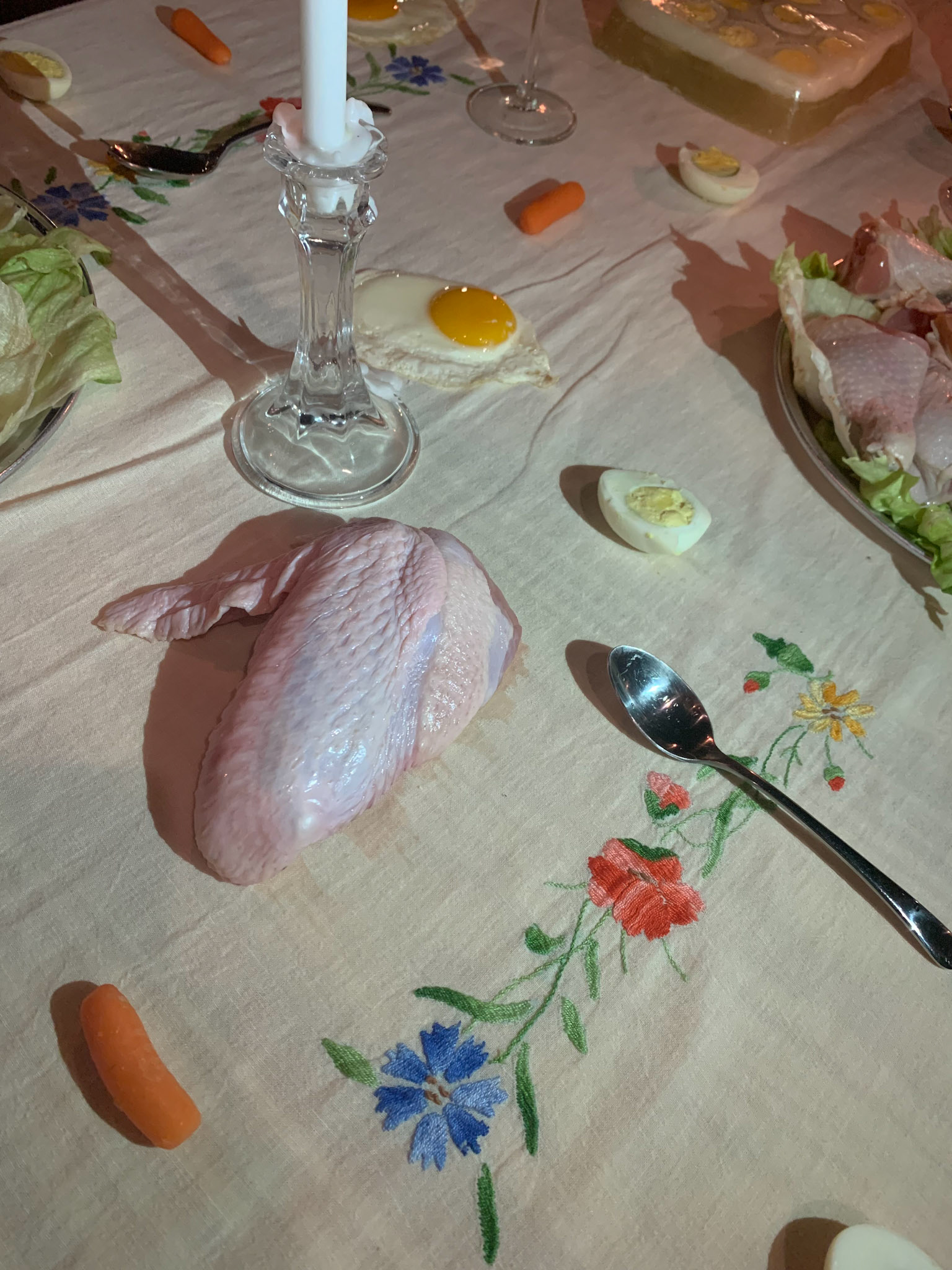

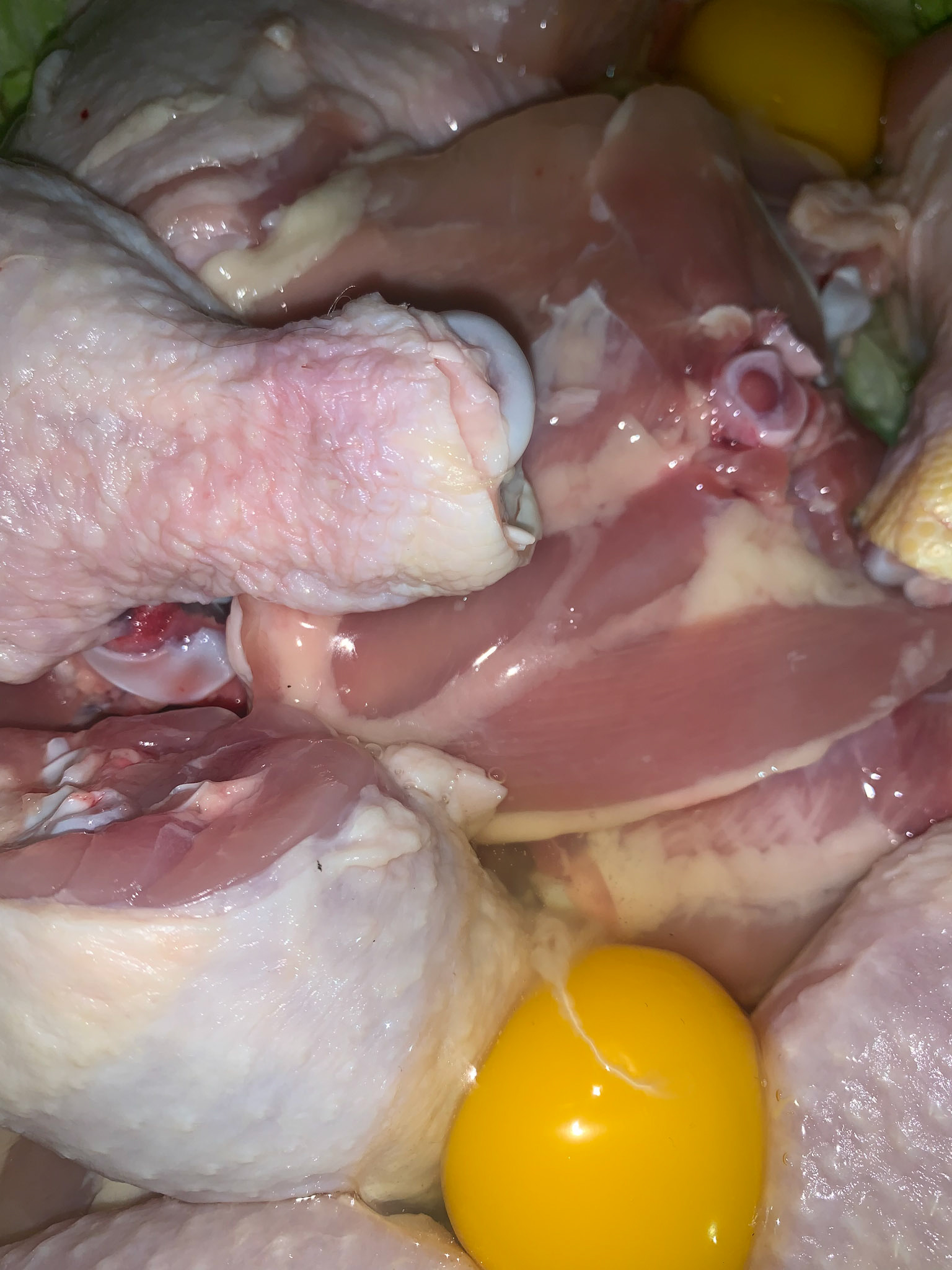

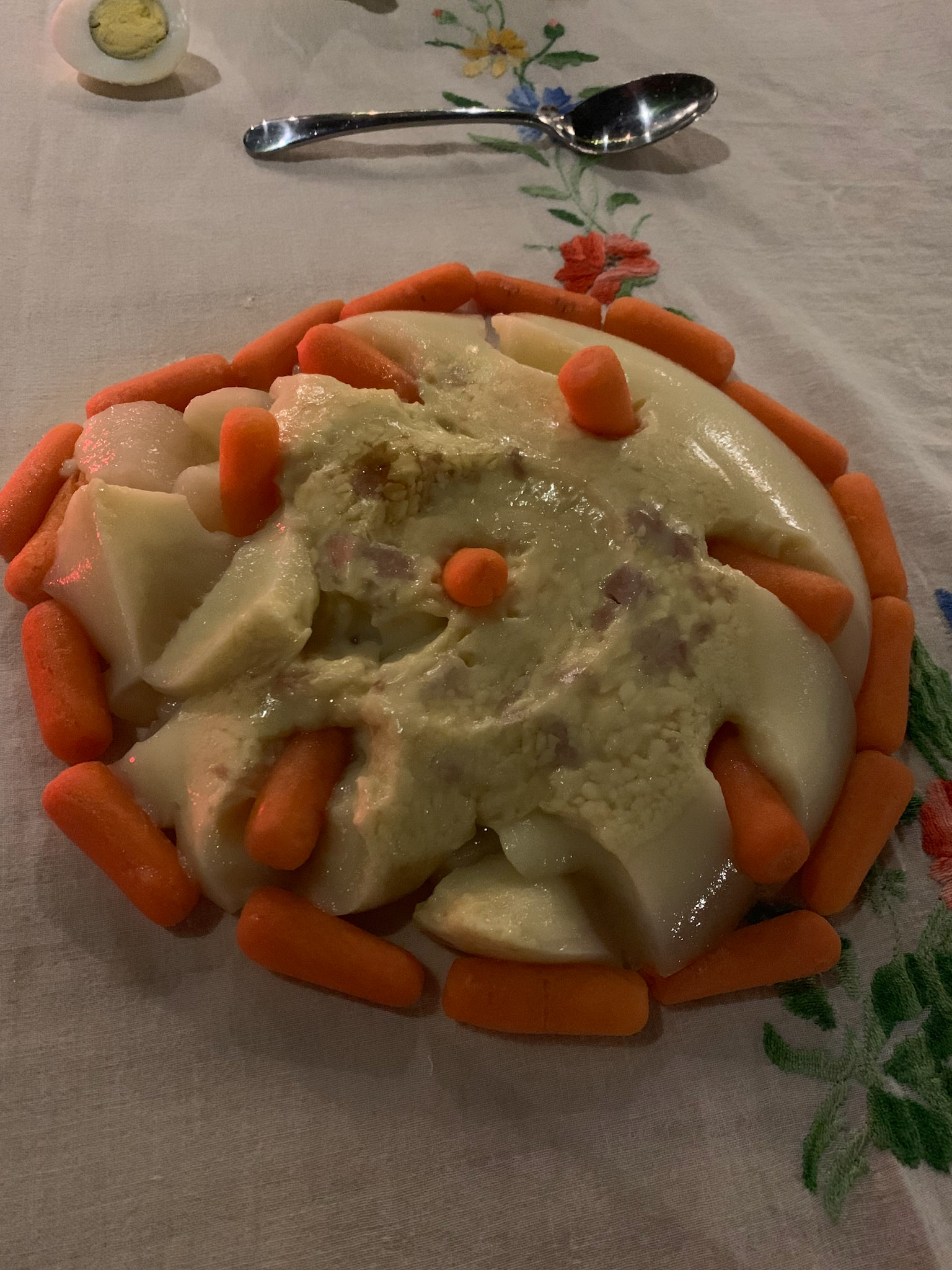
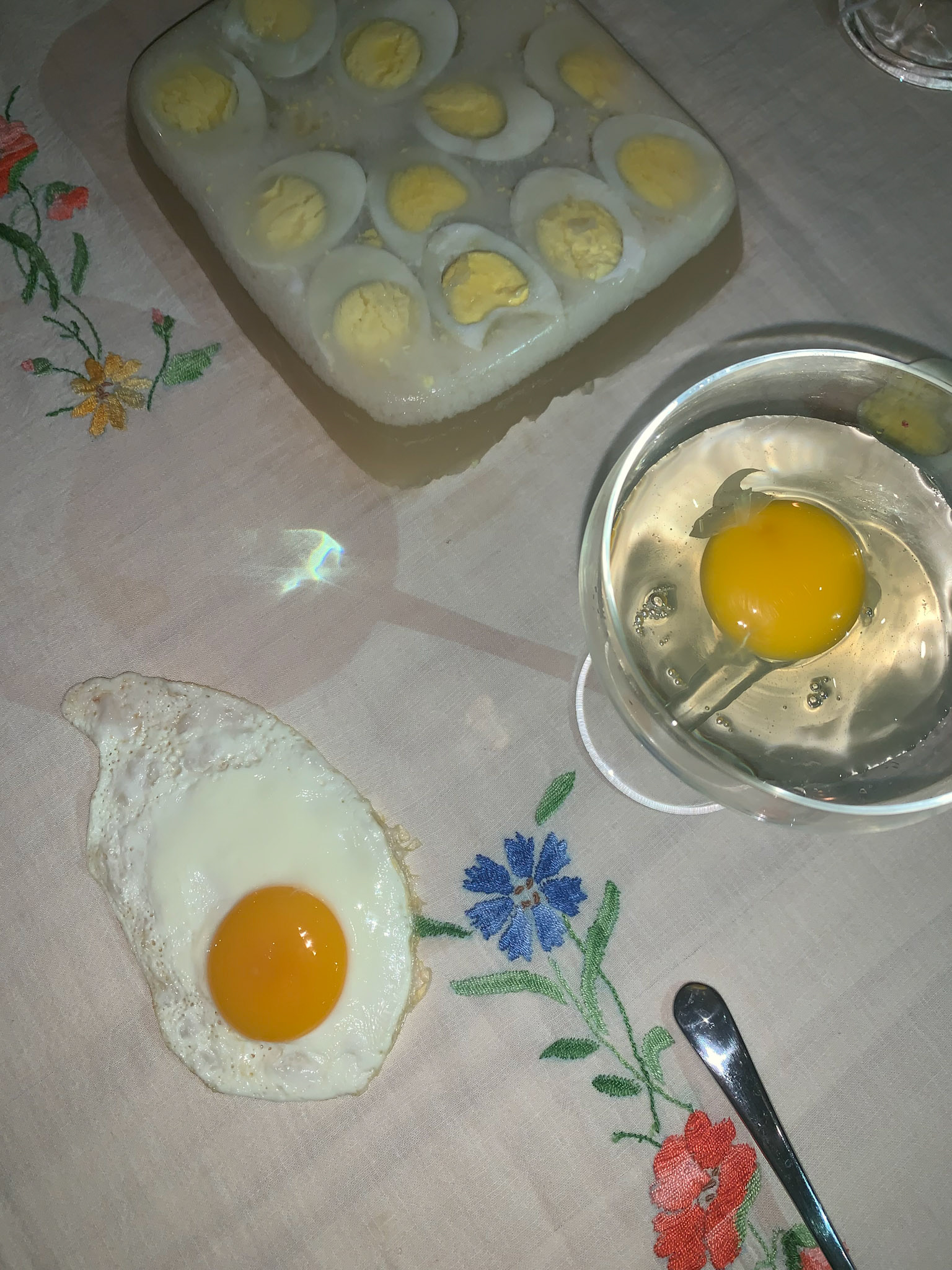
Jacquet, Jennifer, et al. “Could Shame and Honor Save Cooperation?” Communicative & Integrative Biology, vol. 5, no. 2, 2012, pp. 209–213., doi:10.4161/cib.19016.
Rothgerber, Hank. “Meat-Related Cognitive Dissonance: A Conceptual Framework for Understanding How Meat Eaters Reduce Negative Arousal from Eating Animals.” Appetite, vol. 146, 2020, p. 104511., doi:10.1016/j.appet.2019.104511.